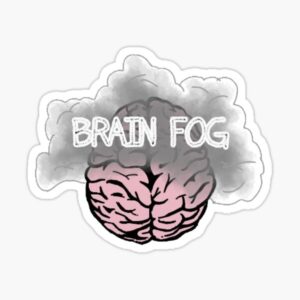A common symptom for a women with ADHD is“brain fog.” Brain fog is a term used to describe a feeling of mental confusion or a lack of mental clarity. It’s a frustrating symptom that can make it difficult to focus, think clearly, and get things done.
If you are a women with ADHD, you may experience brain fog more frequently than others. This is due to your ADHD affects the parts of your brain responsible for attention, focus, and executive functioning. These are the executive functioning skills that allow you to plan, organize, and complete tasks. When these skills are impaired, it can lead to brain fog.
This can be really frustrating for a women with ADHD due to it’s not just a matter of being forgetful or having trouble concentrating. It’s a feeling of mental cloudiness that can make it difficult to even get started on tasks or remember what you were supposed to do.
Factor That Can Contribute To ADHD and Brain Fog
There are several factors that can contribute to ADHD brain fog. These include:
Trouble Sleeping: Women with ADHD often have trouble sleeping, which can lead to fatigue and brain fog.
Stress: Stress can cause mental confusion and make it difficult to focus. Women with ADHD are more prone to stress than others, which can worsen brain fog.
Medications: While medication can be helpful for managing ADHD symptoms, some medications can cause brain fog as a side effect.
Diet: Women with ADHD may be more sensitive to certain foods or additives, such as sugar or food dyes, which can cause brain fog.
ADHD Brain Fog Symptoms
When you’re dealing with brain fog, you may have symptoms like:
- Mental fatigue or sleepiness
- Forgetfulness
- Mind wandering
- A cloudy or daydreamy feeling
- An inability to concentrate or focus
- A feeling that you’re disconnected from reality
- Distraction
- Loss of motivation
- Slow physical movement
- A feeling of being overwhelmed
- An inability to find words to express your thoughts
Managing Brain Fog
Take 15 minutes to engage in something mentally stimulating that you enjoy.
Monitor your sleep habits. Not getting enough sleep can make your brain fog increase but sleeping too much can do the same thing. Try to sleep seven to eight hours a day (or whatever amount you found works best for you), the trick is to be consistent
Change your environment. Sometimes a simple relocation will help (that means get off the couch or out of bed) and try completing whatever task in a new environment.
Have something to eat. Preferably something healthy but several members did indicate chocolate was a favorite.
Write. Keep a diary of what you are thinking when you are in a brain fog. It will help organize your thoughts and force your brain to start working.
